
30
YEARS COMBINED EXPERIENCE
1846+
SATISFIED CLIENTS
500+
SUCCESSFUL LAWSUITS
FREE COLLIN PERSONAL INJURY LAWYERS
CASE EVALUATION
OR CALL
30
YEARS COMBINED EXPERIENCE
1846+
SATISFIED CLIENTS
500+
SUCCESSFUL LAWSUITS
TESTIMONIALS FOR COLLIN PERSONAL INJURY LAWYERS








3 EASY STEPS TO HIRE A COLLIN PERSONAL INJURY LAWYER
1
CALL AN
ATTRORNEY
2
GET FREE CASE
EVALUATION
3
LET THE SMART
SUITS HANDLE
THE REST
COMMUNITY AND FIRM EVENTS
Here at Gosuits we understand that being a part of the community means more than just providing legal services. Whether we are participating in a community event or hosting a firm event, our goal is always the same: to build strong relationships with the people we serve and to make a positive impact in our community.











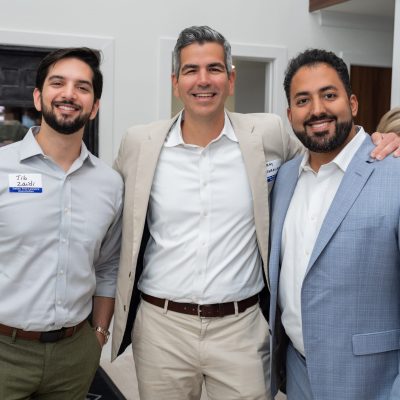




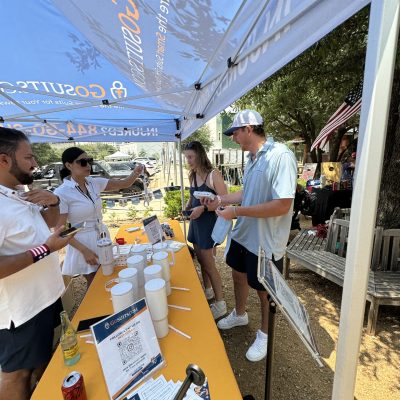
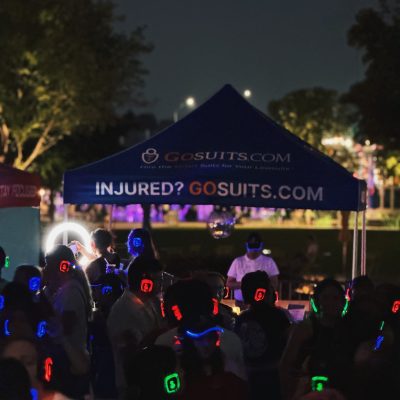

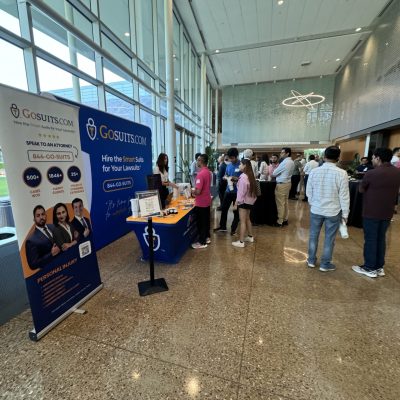

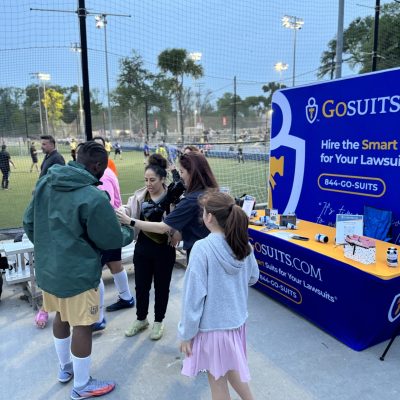




We're Recognized As A Top Rated Accident Attorney in Collin County, TX
Protecting your rights is our top priority!
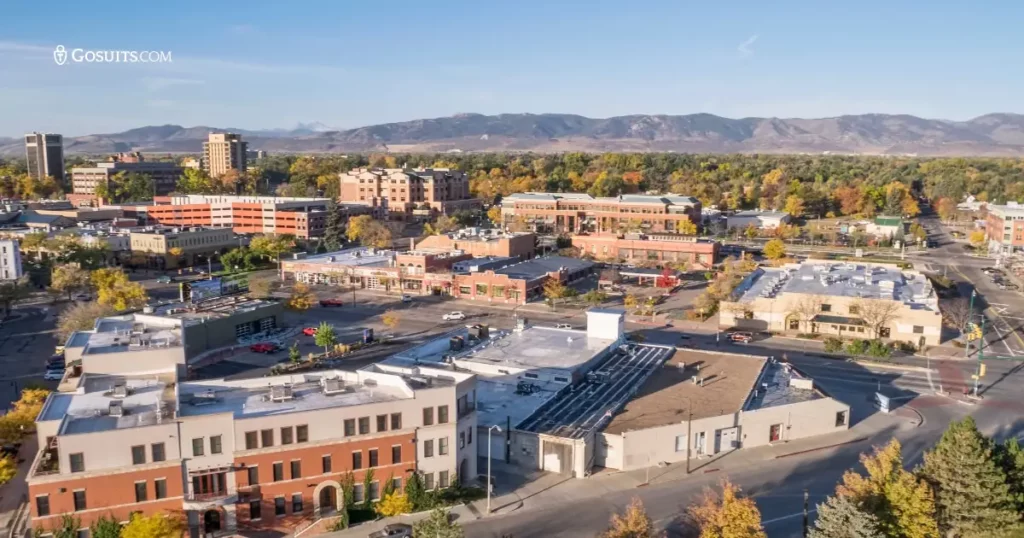
The county of Collin may be found in the state of Texas in the United States. It is included in the Dallas-Fort Worth-Arlington combined statistical area and contains a tiny portion of the city of Dallas as well. Arlington County is also included. The population of the county was 1,064,465 as of the census taken in the United States in the year 2020. This places the county in the sixth spot for most populous counties in the state of Texas and in the 43rd spot for most populous counties in the United States. McKinney serves as the county seat for this area.
The land area of the county, which includes property from four other Texas counties for a total of 777 square miles, places it in the position of the state’s second-smallest county by land area. Highway 75, the President George Bush Turnpike, State Highway 121, and U.S. Highway 121 are some of the most important routes in Collin County. The Collin County Outer Loop is a planned multi-modal transportation facility that is 55 miles long and will ultimately go from the line between Denton and Collin County all the way to the line between Rockwall and Collin County. Along the way, it will pass through cities such as Celina, Weston, Anna, Melissa, Farmersville, Josephine, and Royse City. The President George Bush Turnpike in Plano features two interchanges: one with Interstate 30 and the other with U.S. Highway 75.
According to data compiled by the National Highway Traffic Safety Administration, collisions involving motor vehicles continue to be a key concern with regard to public safety in Collin County. Despite advancements in car safety features, road design, bicycle and pedestrian lanes, and traffic signals, a large number of accidents involving automobiles, trucks, bicycles, pedestrians, and motorcycles still take place every year. In the past several years, the county has witnessed the implementation of a number of new measures to promote public safety via the implementation of engineering projects and educational programs meant to minimize the number of accidents, injuries, and fatalities.
As part of these efforts, the George Bush Turnpike will be redesigned between the LBJ Freeway and Marsh Lane in order to accommodate traffic flow. Additionally, new ramps and overpasses will be installed at intersections in order to increase safety, and bike and pedestrian paths will be built along the tollway. Future work will involve further improvements to neighboring frontage roads to increase safety. These upgrades will include the construction of extra turn lanes as well as widening. The project is now underway, with the year 2026 serving as a possible completion date.
Sean Chalaki, a personal injury lawyer in Collin County, and his associates are reliable and dedicated to their clients. Moreover, he will make sure you have direct contact with the firm’s lawyers if you have a legal query. As a sign of our dedication, Gosuits will take on your personal injury case on a contingency fee basis if we win the case. Because we know that you may be struggling financially in the wake of your significant personal injury, we have decided to devote our resources to covering the costs of the personal injury litigation. In the event that we are unsuccessful in obtaining compensation for you, our fees will be deducted from the settlement amount, and you will be responsible for no costs or fees on our end.
We have the top personal injury lawyers in Collin County, Texas, and we can help if you or a loved one has been hurt nearby. We’ve helped locals of Collin County who’ve been hurt in accidents get financial compensation for medical bills, lost wages, and property repairs. Get in touch with the Gosuits Firm right now to set up your no-cost initial appointment.
COLLIN PERSONAL INJURY LAWSUIT
STEPS AND PROCESS
1
Collect All Available Evidence
Every case rests on the backs of investigators who dig deep. We’ll investigate your accident and find evidence like police reports, hospital records, and witness statements. Our injury attorneys go deep into each potential avenue of inquiry, leaving no stone unturned in their exhaustive search for justice.
2
Write a Letter of Demand
A demand letter will be addressed to the offender and their insurance provider or legal counsel. The full financial burden is considered, including future medical expenditures, wage losses, and other expenses.
3
Negotiation
By bringing a lawsuit on your behalf, we acquire bargaining power when an insurance company refuses to give fair compensation. In addition, by filing a case, we can obtain information on the defendants we would not have had access to before.
4
Begin Filing a Lawsuit for Injury
By bringing a lawsuit on your behalf, we acquire bargaining power when an insurance company refuses to give fair compensation. In addition, by filing a case, we can obtain information on the defendants we would not have had access to before.
5
Discovery
Now that we have filed suit, we have the right to obtain information from the defendants that they were previously unwilling to release. By serving them with Requests for Admissions, Interrogatories, and Document Production, we can investigate the validity of their allegations.
6
Mediation
Once both parties have reviewed the facts of the case, a mediation session may be planned to see whether or not an amicable resolution may be reached. The defense will hear our position from a non-biased individual (Mediator), and we may continue bargaining with the insurance company over a reasonable payment.
7
Civil Trial for Injury
We will go to trial if a reasonable settlement cannot be reached. We’ll argue your case in court, using the information found through discovery and any necessary expert testimony. Many of us would rather have a jury decide our cases than a judge, as juries tend to be more compassionate in times of tragedy.
8
Settlement
A settlement has been reached if an agreement can be made before trial. In return for release of all personal injury claims, you should get a settlement that accounts for all your losses up to and including the date of your injury, fees, taxable cost, medical expenditures, lost wages, pain and suffering, etc.
9
Appeal
Suppose the jury decides against you. We will then file an appeal if we believe the defense or the court made a legal mistake. Additional data and legal arguments on our part will likely be required to convince the court of our position. The court, if we prevail, may decide to overturn its earlier ruling or even retry the case.
RESPONSE TO SOME GENERAL QUESTIONS
Who will pay for my medical bills after an accident?
Who is Responsible for the Cost of Property Damage After a Car Accident?
Are There Any Hidden Attorney Fees That I Need To Be Aware of?
What does “No Recovery, No Fee” mean?
Who will pay for my medical bills after an accident?
Who Will Pay for My Car Accident Medical Bills
Determining who will be responsible for your car accident medical bills depends on several factors: the cause of the accident, your level of fault, and the insurance coverage held by the other driver. In such circumstances, seeking guidance and support from a personal injury lawyer, Dallas can prove invaluable.
Following a car accident and sustaining injuries, it is natural to wonder who will bear the burden of your medical expenses and treatment costs. While a car accident injury settlement or a trial verdict can provide financial relief, they may not offer immediate assistance in covering your medical treatment. The answer, in essence, relies on the accident’s nature, the relevant state laws, and the specific insurance policies involved.
General Rule – Ongoing Payment Responsibility Rests with the Injured Party
It is crucial to understand that, in most cases, if you are involved in an accident, you are responsible for paying your medical bills as they are incurred. The only exception occurs in “no fault” states, which will be discussed below. Even if the at-fault party is clearly responsible for your injuries, the law does not mandate them to cover your bills on an ongoing basis.
The law only requires them to provide damages to resolve your lawsuit, and in many instances, your medical claim is included in those damages. However, the defendant is not obligated to pay your medical invoice as they arise.
Car Accidents – “No Fault” States
In motor vehicle accident cases, the coverage of hospital bills depends on whether the accident occurred in a “no fault” state. In “no fault” insurance states, your automobile insurer will cover some or all of your hospital bills resulting from a car accident, regardless of fault. However, there is typically a limit to what your own automobile insurance company will pay, varying from state to state but generally around $10,000 or less.
Once your medical expenses exceed the state’s “no fault” limit, you become responsible for paying them. If you have health insurance, your provider will cover your bills. In the case of Medicare or a state-run health insurance program through Medicaid, these entities will handle the bills. If you lack health insurance, Medicare, or Medicaid, you will need to arrange payment agreements directly with your healthcare providers.
Motor Vehicle Accidents – Non-“No Fault” States (Dallas, TX)
If you are involved in a serious accident in a state without “no fault” insurance, you will generally be responsible for paying your expenses until you claim compensation from the at-fault party. However, some drivers in these states have medical payment or Personal Injury Protection (PIP) insurance coverage, commonly known as “med pay” and “PIP” coverage.
This coverage will pay for the fair compensation of drivers or passengers involved in a car accident with the insured party, up to the “med pay” policy limits, which are typically less than $10,000. Once your bills exceed these policy limits, you will be responsible for payment.
Medpay and PIP funds can be utilized initially to cover health insurance deductibles, co-pays, and lost wages until you recover from the at-fault party. If you lack such coverage, in most cases, you will need to find healthcare providers willing to treat you upfront and defer their bills until you receive compensation from the insurance company.
Premises Liability: Slip or Trip and Fall Accidents
In premises liability or slip and fall cases, the responsibility for payment of medical bills typically falls on the injured person, unless the premises owner’s property insurance policy includes “med pay” coverage.
Dallas personal injury attorneys with experience in handling personal injury claims related to premises liability understand that “med pay” coverage can be beneficial. If the premises owner has this type of insurance coverage, the injured person’s medical bills will be paid by the insurance carriers, up to the limits specified in the “med pay” policy. However, once the “med pay” limits are exhausted, the injured person becomes responsible for paying the remaining bills.
Boating Accidents
Boating insurance policies seldom include “med pay” coverage. Consequently, personal injury victims involved in boating accidents will likely be responsible for covering their own expenses. It is crucial for individuals who suffer injuries caused by boating accidents to consult the right lawyer in Dallas to understand their legal options and seek rightful compensation for their injuries.
Work-Related Accidents
In the unfortunate event of a work-related accident due to gross negligence, personal injury victims may find relief if their company carries workers’ compensation insurance. In such personal injury cases, the workers’ compensation insurer will cover all the medical bills incurred by the injured party. It is important to note that these victims involved in work-related accidents are not required to contribute any money towards their expenses, including bills or deductibles.
Moreover, our Fort Worth, Dallas personal injury lawyers who handle personal injury cases are well-versed in the laws pertaining to workers’ compensation and can ensure that victims receive proper reimbursement for transportation expenses related to medical appointments. However, if a company does not have workers’ compensation insurance, pursuing damages under Texas non-subscriber laws becomes necessary.
Reimbursement for Medical Bills Paid by Insurers
If health insurers, Medicare, or the state agency administering Medicaid benefits have paid for your medical bills in relation to the accident, they are entitled to reimbursement for the amount they disbursed to your healthcare providers. Skilled Dallas personal injury attorneys can help navigate the complexities of dealing with insurers and ensure fair reimbursement processes.
Worst-Case Scenario
In the worst-case scenario where an accident occurs, insurance coverage is unavailable, and it is determined that there is no personal injury case due to factors such as personal fault or insufficient evidence, the injured party becomes solely responsible for all medical expenses. These victims facing this situation have limited options and should seek legal counsel to explore any possible alternatives.
Who is Responsible for the Cost of Property Damage After a Car Accident?
Who is Responsible for the Cost of Property Damage After a Car Accident in Dallas?
In Dallas, Texas, the responsibility for covering the cost of property damage resulting from a car accident lies within specific legal parameters. As a car owner, you have the right to choose the body shop for repairing your vehicle. However, determining who will foot the bill for your property damage depends on the urgency of your vehicle’s repair and whether the at-fault party has accepted liability.
In Dallas, as in most places, the responsibility for the cost of property damage after a car accident typically falls on the at-fault driver’s insurance company. Texas follows a fault-based system, meaning that the driver who caused the accident is generally responsible for covering the damages.
If you were not at fault in the accident, you can file a claim with the at-fault driver’s insurance company to seek compensation for your property damage. Their insurance should cover the cost of repairing or replacing your damaged property, such as your vehicle or any other damaged property involved in the accident.
It’s important to gather evidence and documentation of the accident, including photographs, police reports, witness statements, and any other relevant information that can support your claim. You should notify your insurance company about the accident as well, even if you are not at fault, to ensure they are aware of the situation.
If the at-fault driver does not have insurance or is underinsured, you may need to rely on your own insurance coverage, such as uninsured/underinsured motorist coverage, to help cover the property damage costs.
Are There Any Hidden Attorney Fees That I Need To Be Aware of?
Are There Any Hidden Attorney Fees That I Need To Be Aware of?
When you engage the services of our Dallas personal injury law firm, we ensure complete transparency regarding our fee structure. There are no hidden charges or surprise fees that catch you off guard. We take the time to explain the details of our contingency fee agreement, outlining all the fees and expenses involved.
In fact, paragraphs 1 and 2 of our agreement provide a comprehensive breakdown, and we require your initials next to each item to confirm your understanding. Our aim is to establish trust with our clients, providing them with peace of mind and alleviating any concerns. Our goal is not to profit at your expense but rather to obtain the best possible results for your injuries and damages.
Are My Medical Bills And Attorney Fees Combined?
It’s important to note that your medical bills and attorney fees are separate entities. While our law firm fees are based on the “No Fee, No Recovery” concept, your medical bills remain your responsibility. For instance, if you received a bill from the emergency room following your accident, it is your obligation to settle that bill as it does not fall within our purview to waive it.
However, when you enter into a contract with an experienced personal injury lawyer in Dallas, such as ourselves, you grant us permission to reimburse the medical providers from the eventual settlement or judgment you receive. This arrangement ensures that your expenses are appropriately handled while allowing us to pursue the compensation you rightfully deserve for your harm or serious injury.
Who Covers the Expenses of Managing My Case?
The good news is that, as experienced personal injury attorneys in Dallas, TX, we have provisions in our contingency contract that allow us to bear the expenses associated with your case. Our law firm agreement enables us to cover the necessary costs throughout the process, and once we secure a settlement on your behalf, we will deduct those expenses from the settlement amount.
It’s important to understand the typical expenses involved in a personal injury case, as they can be significant. For instance, the police department charges a fee for providing copies of the police report, collision videos, and the police call log. Medical providers charge per page to produce your medical records. Filing a lawsuit incurs fees imposed by the court.
What sets our law firm apart is our commitment to leveraging digital resources to streamline these requests and save you money at every turn. For example, our Dallas personal injury attorney makes digital requests for your medical records and bills, opting for a flat fee instead of a per-page charge.
Our communication is predominantly conducted through email and client portals, providing you with convenient and cost-effective access to our Dallas personal injury lawyers. This approach allows us to operate as a faster and more affordable law firm, dedicated to serving your needs.
What does “No Recovery, No Fee” mean?
What does “No Recovery, No Fee” mean?
“No Recovery, No Fee” or “No Attorney Fee if No Recovery” means that you will not be responsible for your attorney fees if we lose your case, or do not settle your case with the responsible party or their insurance company. We will charge you a percentage of the settlement instead of the typical retainer and hourly fees that attorneys charge.
Therefore, if we lose your case any percentage X $0.00 = $0.00 and you owe us nothing for attorney fees. This agreement allows you as a victim of a car accident to receive the proper medical attention that you need without worrying about the outrageous legal fees piling up. Also, this will give you the opportunity to handle your property damage much faster and get back to your daily lives.
In the other Sections, we explain that although there are no attorney fees if there is no recovery, your medical bills and expenses are still due and the medical providers will want payment irrelevant of the results. In addition, we explain in some rarer circumstances that if we lose you may be responsible for attorney fees and taxable court costs of the defendant if the judge exercises discretion and grants them.
If I Lose, Will I Be Responsible For Any Case-related Costs?
In personal injury cases, many law firms operate on a contingency fee basis. This means that you will only be responsible for legal fees and case-related costs if your case is successful and you receive a settlement or award. In the event that your case is not successful, you typically will not be required to pay your attorney’s fees or cover the expenses incurred during the litigation process. It is important to discuss fee structures and any potential financial obligations with your Dallas personal injury attorney before proceeding with your case.
Do I Really Need A Personal Injury Lawyer To Handle My Personal Injury Claims?
While it is possible to handle a personal injury claim on your own, it is highly recommended to seek the guidance and representation of an experienced personal injury lawyer. Personal injury cases can be complex, involving intricate legal procedures, negotiation with insurance companies, and thorough investigation of the accident and your injuries. Skilled personal injury attorneys have the knowledge and skills to navigate this complexities, protect your rights, and maximize your chances of obtaining fair compensation for your injuries and losses.
Have You Litigated A Personal Injury Case Like Mine Before?
When choosing personal injury lawyers, it is essential to inquire about their experience handling cases similar to yours. Ask the personal injury attorneys if they have successfully litigated cases involving the same type of accident or injuries. An attorney with prior experience in handling cases like yours will have a better understanding of the legal strategies, challenges, and potential outcomes specific to your situation.
How Much Is My Personal Injury Case Worth?
The value of a personal injury case varies depending on several factors, including the severity of your injuries, the impact on your life and future earning capacity, medical expenses, property damage, and more. It is important to remember that each case is unique, and no attorney can guarantee a specific outcome. However, a skilled attorney will work diligently to assess the damages and fight for fair compensation on your behalf.
How Long Does A Personal Injury Lawsuit Take To Get A Settlement?
The duration of a personal injury lawsuit can vary significantly based on various factors, including the complexity of the case, the cooperation of involved parties, and court schedules. Some cases may be resolved through settlement negotiations outside of court, while others may require litigation and potentially go to trial. The timeframe can range from several months to several years.
GET TO KNOW OUR COLLIN PERSONAL INJURY LAWYERS
It's time we do things the SMART way rather than the hard way
“Hire the Smart Suits for Your Lawsuits”
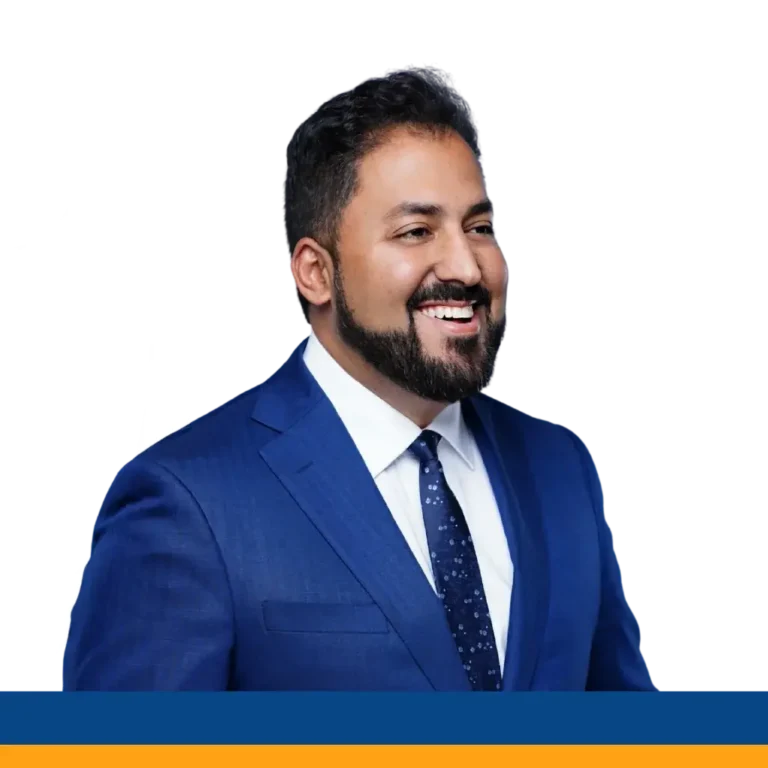
SEAN CHALAKI
- Principal / TX & CA Litigation Attorney
- Texas Super Lawyers: Rising Star 2016 2023 2024
- Law Firm of the Month by Attorney at Law Magazine 2016
- Top 40 under 40 Trial Attorney by The National Trial Lawyers (2015, 2016, 2022)
- Board Member Texas Trial Lawyers Association
- Dallas Trial Lawyers Association
- Danielle Hall, Individually Anf Amh-s V. Witron Integrated Logistics, Inc. Et
- Best Lawyers Ones to Watch 2022
- Best Lawyers 2024

YASAMIN MOUSSAVI
- Principal / Texas and New York Litigation Attorney
- Licensed Attorney with State Bar of Texas
- Licensed Attorney with State Bar of New York
- Licensed Attorney in Federal and District Court
- South Australian Bar Association
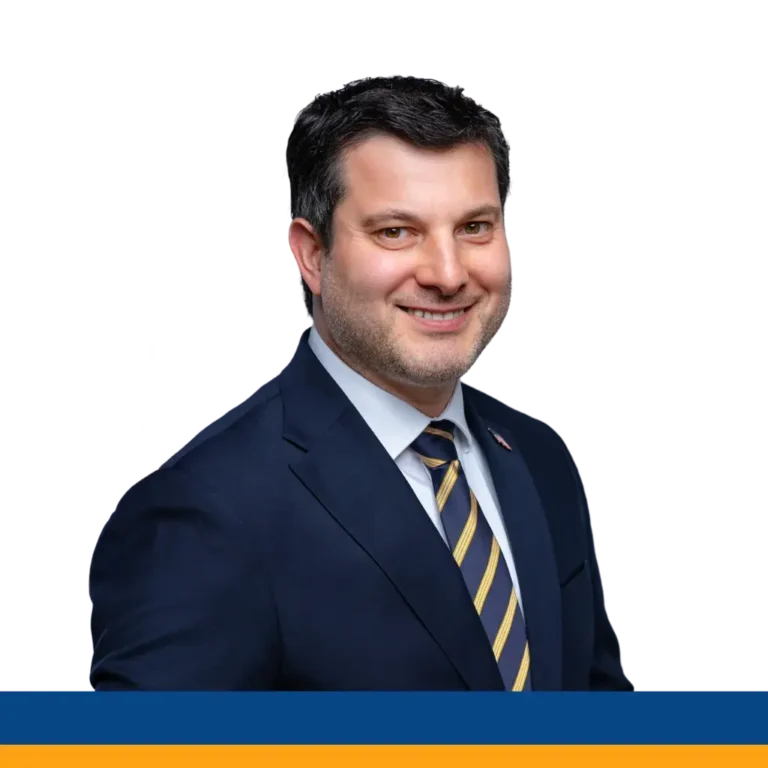
SHAWN HASHEMI
- Principal / Litigation Attorney
- State Bar of Texas U.S. Federal District Court for Northern District of Texas
- U.S. Federal District Court for Eastern District of Texas
- U.S. Federal District Court for Southern District of Texas
- U.S. Federal District Court for Western District of Texas

SHIREEN TAVAKOLI
- Litigation Attorney / Principal, Gosuits California
- Super Lawyers Rising Star: 2023–2025
- J.D., UCLA School of Law
- M.St., International Human Rights Law – University of Oxford
- Former Legal Advocate, UN Refugee Agency
- Former Liaison, U.S. Rep. Eddie Bernice Johnson

ABBAS HARATI
- Admitted to the State Bar of California
- Certified Mediator in the State of Texas
- Member of the Orange County Trial Lawyers Association
- Member of the Consumer Attorneys Association of Los Angeles
We are here to help with your injuries or
assist with loss of a loved one.
or CALL
(844) 467-8487
LEGAL DISCLAIMER
The content of this website has been prepared by Gosuits.com, for informational purposes only and should not be construed as legal advice from a lawyer. The material posted on this website is not intended to create, and receipt of it does not constitute, a lawyer-client relationship, and readers should not act upon it without seeking professional counsel. The chat system is an automated system that provides general information and not legal advice. You should not rely on any of the information, nor should you ever disclose private information to anyone in the chat system. Our office will never ask you for your private information until you have retain our firm with a written contract. Until there is an established written contract there is no attorney-client relationship. The knowledge base section of this website is not to be used as legal advice or legal resources. This website contains attorney advertising. Prior results do not guarantee a similar outcome. Disclaimers.

Service Areas
TEXAS
CALIFORNIA
ILLINOIS
- Gosuits Trial Lawyers - Dallas Texas Principal Office: 3234 Commander Dr. Suite 800 Carrollton, Texas 75006
- Gosuits Trial Lawyers - Irvine California Office: 2082 Michelson Dr. Suite 315 Irvine, CA 92612
- Gosuits Trial Lawyers - Los Angeles California Office: 11900 W Olympic Blvd suite 640, Los Angeles, CA 90064
Top Services
Texas Service Areas
Illinois Service Areas
California Service Areas
- (844) 467-8487
- www.gosuits.com
* Best Lawyers Ones to Watch 2025 – Sean Chalaki
* Best Lawyers Ones to Watch 2022 – Sean Chalaki
* Rising Stars 2016 – Sean Chalaki
* Attorney at Law Magazine 2016 – Sean Chalaki
* The National Trial Lawyers 2015 – Sean Chalaki
Copyright © 2024 Gosuits.com. All Rights Reserved | Privacy Policy | Terms and Conditions
